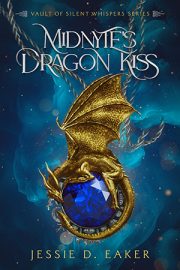Work-for-Hire in Short Fiction: An Overview
By Rachael K. Jones
Work-for-hire writing jobs are common in novel-length work, especially in the world of tie-in fiction, but rarer in short fiction. If you’re primarily a short fiction author, you might be caught off-guard if approached with this kind of work. You may not have an agent who can give you advice. You might not know how much money to ask for, or how to tell a valid offer from a scam. If you’ve been approached with short fiction work-for-hire and don’t know where to start, this article is for you!
Overview of Work-for-hire
Work-for-hire is defined by the US Copyright Office as work where “the hiring or commissioning party is considered the author and the copyright owner.” This differs from a typical author–publisher relationship where the publisher purchases limited rights to use a story in a specific way. For example, if you sell a story to Clarkesworld, after the exclusivity period ends, you can reprint the story, include it in a collection, translate it, sell movie rights, write sequels, expand it into a novel, or use it any way you’d like.
Under the work-for-hire model, this isn’t the case. In exchange for the upfront payment, you assign the copyright to the commissioner of the work to do with as they please. This entity now has the right to use the story however they wish: they can include it in a collection, sell the movie rights, produce sequels, make it into merchandise or non-fungible tokens (NFTs), and so forth, while you lose the legal right to do so.
Because of this transfer of copyright, the most common use for the work-for-hire model is working within someone else’s intellectual property (IP). If you’ve dreamed of being paid to write an official Star Wars tie-in story, you’ll almost certainly do it as work-for-hire. This makes sense, because Lucasfilms will want to maintain control of the Star Wars IP, including any characters or ideas you contribute through your story. They will not be obligated to pay you again, or consult with you if they decide to use the characters you create in future stories.
Selling your own original work under a work-for-hire model is unusual, since being asked to give up the whole copyright to your original work is often a red flag for a scammy or inexperienced publisher.
Work-for-Hire Survey
Because there are no hard-and-fast guidelines for work-for-hire compensation, I conducted a survey to learn about types of work-for-hire short fiction, payment trends, and whether authors who did this kind of work felt well-compensated. The authors surveyed have shared this data in the hopes of providing newer authors with a frame of reference for these types of negotiations.
The survey included 11 authors, and covered a total of 25 work-for-hire experiences. All works but one were written within an existing IP.
Most authors surveyed reported much higher pay rates than the commonly accepted “professional” short fiction rate of $.08/word. Work-for-hire payment models included word count-based, hourly rates, and flat fees. Flat fees were the most common, ranging from $2,500 to $6,000, for word counts of 750 to 10,000 words. Two authors reported payment at $.08/word, and one author reported an $85/hour rate, which translated to about $.50/word at the project’s completion.
Most authors surveyed expected significantly higher payment for work-for-hire. When they worked for lower amounts, it was due to the opportunity for repeat work that added up to bigger payments, or because the project allowed them to write tie-in work for an existing IP.
Authors who were paid flat fees in the range of $2,500 to $6,000 reported feeling well-compensated for their work. The median flat fee payment was $5,000. Authors paid on the lower end ($.08/word) expressed dissatisfaction with their compensation and remarked that professional work-for-hire projects should pay more.
The types of projects varied. Authors reported writing work related to existing book settings, comics, movies/TV, video games, and toys/products, as well as working within a client’s original IP.
Author Considerations
So what’s an author to do if approached with a proposal for a work-for-hire project? Consider the whole package:
- Is the payment fair and in line with work-for-hire trends? If the payment seems low, consider negotiating for higher rates, or for residuals/royalties. If possible, talk with others who have worked for the publisher to make sure you’re getting a fair rate for the work; some organizations may set their rates depending on what the author asks for, so don’t lowball yourself!
- Does it give you the chance to work on a dream IP? Contributing to a beloved shared world may be an experience you’re more willing to negotiate on.
- Is there an opportunity for repeat work? For some authors, a regular paid gig may offset a lower pay rate.
- What does the publisher intend to do with the work, and are you happy with permanently releasing your copyright to this publisher and losing control over the work? For example, how will you feel if you’re paid for the work but the buyer never publishes it, or if it goes out of print and you’re never able to share it with readers? How will you feel if the publisher commissions another author to write sequels, or if the publisher makes tons of money from your story but doesn’t pay you again? What if the publisher uses the story in a way that doesn’t match your values?
These considerations are doubly important if a publisher wants to buy your own original work under a work-for-hire model. Consider the implications of giving up your copyright and whether the compensation is adequate. Especially when there is the potential for a publisher to make additional money off your original work through sequels or adaptations, it may be prudent to advocate for a traditional short fiction contract, or a royalties structure.
Finally, if the work is in film/TV or other multimedia, consider consulting with an agent first, as these projects can have a lot of ins and outs that are difficult for authors to negotiate alone.
Work-for-hire short fiction projects can bring many wonderful opportunities, from the chance to work on dream IPs to a good paycheck. Just remember that any work you produce under this model will forever and permanently leave your ownership, so make sure you’re getting enough out of the bargain to make it worthwhile.
 Rachael K. Jones is a critically acclaimed speculative fiction author in Portland, Oregon. She is a World Fantasy Award nominee and Tiptree Award honoree. Her fiction has appeared in venues worldwide, including multiple Year’s Best anthologies, Lightspeed Magazine, Beneath Ceaseless Skies, and Strange Horizons. Follow her on Twitter @RachaelKJones, or check out her website: www.RachaelKJones.com.
Rachael K. Jones is a critically acclaimed speculative fiction author in Portland, Oregon. She is a World Fantasy Award nominee and Tiptree Award honoree. Her fiction has appeared in venues worldwide, including multiple Year’s Best anthologies, Lightspeed Magazine, Beneath Ceaseless Skies, and Strange Horizons. Follow her on Twitter @RachaelKJones, or check out her website: www.RachaelKJones.com.


